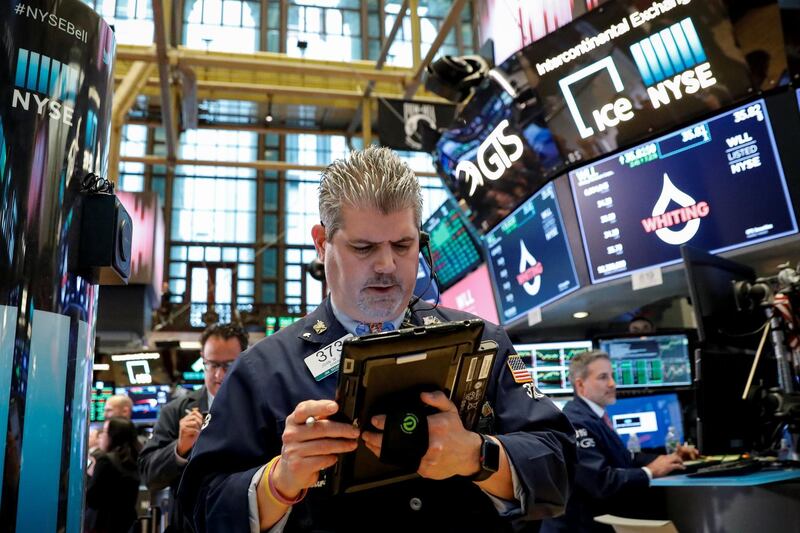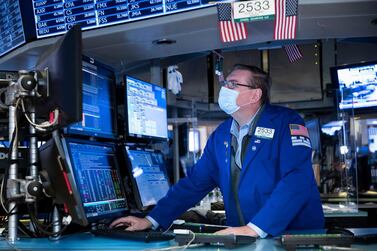The start of the Joe Biden transition, news that Janet Yellen will be the new US Treasury Secretary plus hope of early Covid-19 vaccines continue to underpin positive equity market momentum as a return to normality in 2021 begins to beckon. However, such exuberance carries risks, especially when the fundamental backdrop remains so challenging and the ability to get things done could still remain constrained.
November has been a strong month for equity markets, with global stocks on course for one of their biggest monthly rises on record. The MSCI World Index has risen by 13 per cent so far in November, with just one day of the month remaining.
Already, more than $77 billion has been put to work in US-listed exchange-traded funds this month, and according to EPFR, a platform that provides data on investor flows around the world, emerging market equity inflows rose by a substantial $14bn in the last two weeks alone.
A softer dollar is probably playing its part in supporting equities and is also helping to propel commodities such as oil and copper to higher levels. Bitcoin has also been a notable beneficiary, retesting and surpassing its 2017 highs.
Having overcome some initial anxiety about the US election, and as Donald Trump’s legal challenges evaporated, markets started to embrace the contours of the new Biden administration as the transition finally began to get under way. Combined with the reality that three Covid-19 vaccines were also on their way, positives started to outweigh residual concerns, with the focus turning to the probability that more financial stimulus is likely to be seen soon.
A particular source of optimism is that Mrs Yellen, the former Federal Reserve chair, is being tapped to take over the helm of the Department of Treasury. If appointed, she will be the first person to hold the top three economic positions in government – at the Federal Reserve, the Council of Economic Advisers and now at the Department of Treasury.
Given the strength and breadth of her experience, Mrs Yellen will be a very reassuring figure to financial markets, especially at a time when the relationship between the Fed and the Treasury was beginning to fray following the decision by current Treasury Secretary Steven Mnuchin to close some of the Fed’s emergency lending facilities.
As a former Fed chair, she is uniquely placed to understand the importance of government fiscal stimulus programmes, particularly as there is limited room for more quantitative easing.
With less than two months until the US presidential inauguration, markets appear willing to look through the pain currently being exhibited by the economy and are instead focusing on a better world that may lie ahead. However, such unalloyed optimism is not without risks, especially at a time when market sentiment, price action and market positioning are all pointing one way.
It is worth remembering that a number of significant hurdles will confront investors in the coming months. Markets might have been able to absorb the slower data until now, but this is likely to get much worse in coming months as stricter virus control measures are introduced.
At the end of December, two emergency employment programmes are also due to expire, at a time when household indebtedness is rising and US unemployment remains elevated. US personal income declined 0.7 per cent in October and spending increased 0.5 per cent, highlighting how consumers are drawing down savings to maintain current levels of spending, with the savings rate slipping to 13.6 per cent from a record high of 33.7 per cent in April.
Unless new measures are introduced, fiscal policy will become a drag on economic growth in coming quarters, making it all the more important that the next US administration moves fast to head off any further slowing in activity. However, a gridlock may get in the way in Washington if the Democrats do not win the two remaining Senate seats being contested in January in Georgia.
So while appointing Mrs Yellen appears to be a step in the right direction, the new US government’s ability to move as fast as it would like to may still end up being impeded, with investors seeing their patience tested.
Tim Fox is a prominent regional economist and financial markets analyst, and an adviser to St Gotthard Fund Management in Switzerland







